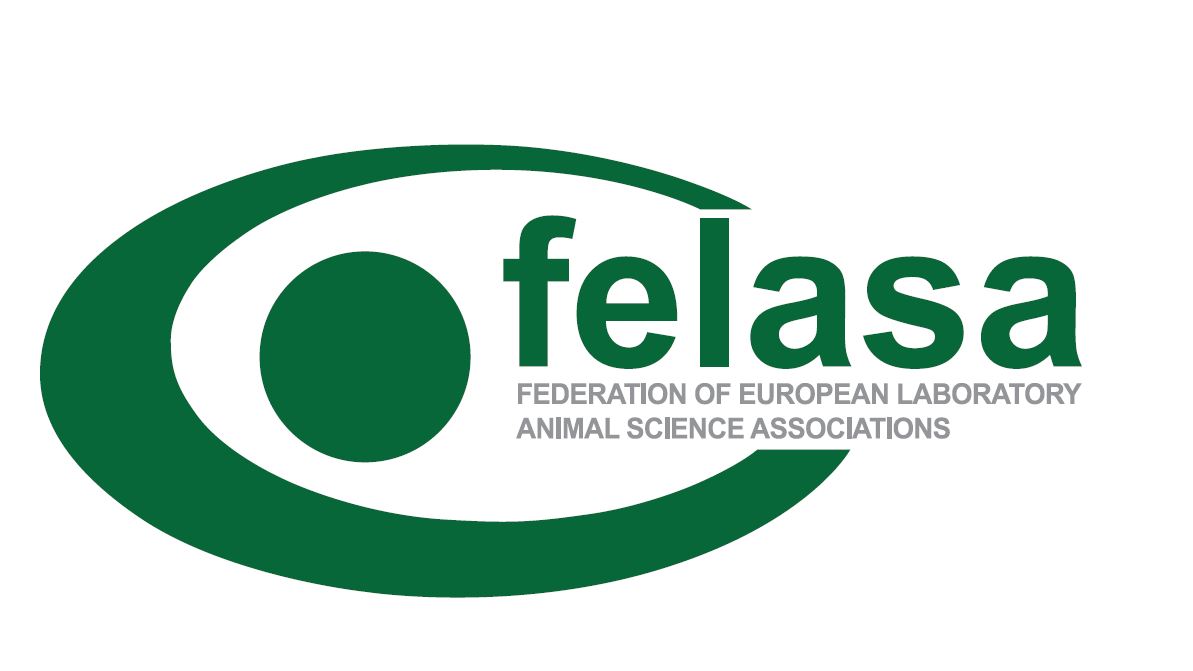Laboratory Animal Science
EU Function ABD
Aim and content
The course is a function A/B/D course according to the EU Directive 2010/63/EU Article 23.2 (previously designated category C), accredited by the Federation of European Laboratory Animal Science Associations (FELASA) and approved by the Ministry of Food, Agriculture and Fisheries under the Danish Government.
The course gives practical and theoretic introduction to handling, housing and using laboratory animals and how to replace, refine and reduce the use of live animals for research.
After completed course, the participant will get a FELASA accredited certificate from the University of Copenhagen, and will be registered in the European FELASA database. The participant will thus be entitled to achieve a personal license to independently plan, implement and take responsibility for the design and performance of animal experimentation within the European Union according to the EU Directive 2010/63/EU Article 23.2 and the Danish executive order 1065 of 25/09/2024 §55.
The course adheres to the EU Directive 2010/63/EU, and to the more detailed learning outcomes described in the Education and Training Framework by the European Commission expert working group (click here for more info).
Learning outcomes
Knowledge
After completing the course the student is expected to
- understand that animal experimentation is complicated and requires current training to secure the well-being of the animals and the scientific outcome
- explain the biological basis of laboratory animal breeding and maintenance, housing and management including basic genetics and reproduction, health monitoring, housing and handling (pre-, intra and post-procedural)
- explain the legal basis for animal experimentation
- explain and critically evaluate the scientific methods applied within animal experimentation including blood sampling, injections, principles for drug-development and testing, anesthesia and analgesia and evaluation of pain -and stress related behaviour in laboratory animals
- discuss the basic biology of laboratory animals including behavioural and physiological needs
- give examples of commonly applied animal models
- explain and critically evaluate basic knowledge relating to design and evaluation of studies using live animals
Skills
After completing the course the student is expected to
- organize self-training on handling and procedures in the most common laboratory animals
- discuss and evaluate the basic principles on how to use animals for research
- discuss and evaluate principles of procedures on their future experiments
- discuss, evaluate and argue about the ethical basis for the use of animals for research
- be able to plan an experiment in relation to experimental design, group sizes and reporting
Competencies
After completing the course the student is expected to
- independently take responsibility to implement and further develop practical skills in handling of common rodents used for research
- independently take responsibility to implement and further develop practical skills in the performance of basic animal experiments
- achieve a personal license to independently plan, implement and take responsibility for the design and performance of animal experimentation within the European Union according to the EU Directive 2010/63/EU Article 23.2 and the Danish executive order 1065 of 25/09/2024 §55
Participants
PhD students, post-docs and other academic staff.
Master students enrolled in an education programme at the University of Copenhagen are referred to the courses offered via KU's course catalogue, please click here.
Language
English.
Course directors
Klas Abelson, Professor, PhD
Department of Experimental Medicine, University of Copenhagen.
Axel Kornerup Hansen, Professor, DVM
Department of Veterinary and Animal Sciences, University of Copenhagen
Teachers
Staff at the Department of Experimental Medicine and the Department of Veterinary and Animal Sciences at the University of Copenhagen.
Time
The course is offered four times per year:
1. Course start early in February - exam early in April
2. Course start mid April - exam by the end of June
3. Course start early in September - exam early in November
4. Course start mid November - exam by the end of January
- Theory is offered via online teaching available at all times, with the possibility to meet teachers on regular occasions.
- Compulsory practicals (in total three sessions with physical presence during two consecutive days) are offered weekly on dates selected by the participants.
- Examination is offered as an online oral exam.
For students unable to take the practicals or exam at the ordinary dates, flexible solutions, where the student can select dates for course start, practical exercises and exam after own preferences, can be arranged for an additional cost. The flexible option is selected in the course registration form.
Workload
E-learning 85 h
Plenary sessions 12 h
Practical exercises 12 h
Preparation 95 h
Exam 2 h
Total 206 h
Place
Department of Experimental Medicine, Panum, Blegdamsvej 3B, DK-2200 Copenhagen N.
Frederiksberg Campus, Dyrlægevej 45, DK-1870, Frederiksberg.
Price
The course is free of charge for PhD-students at Danish universities. Please click here for more information.
For staff employed at the University of Copenhagen, the fee is 17.100 DKK.
For external participants, the fee is 25.600 DKK.
The flexible option described above cost 21.400 DKK for KU employees and 32.100 DKK for external participants.
The fee includes course materials and refreshments at practical sessions. Lunch is not included.
Registration
PhD-students at SUND must register via the SUND PhD Course Catalogue
Other register via the Course registration form
Deadline for registration is two weeks before course start.
Contact information
Course Director
Klas Abelson
Professor, PhD
+45 35 33 55 75
klasab@sund.ku.dk

